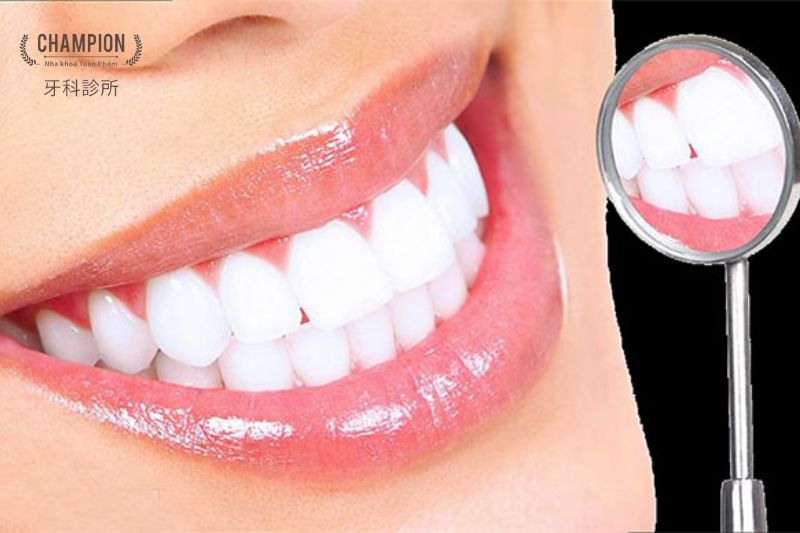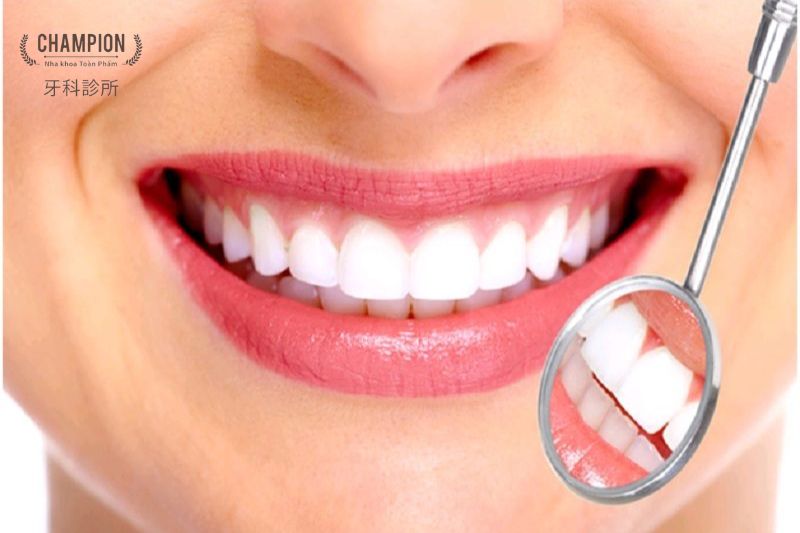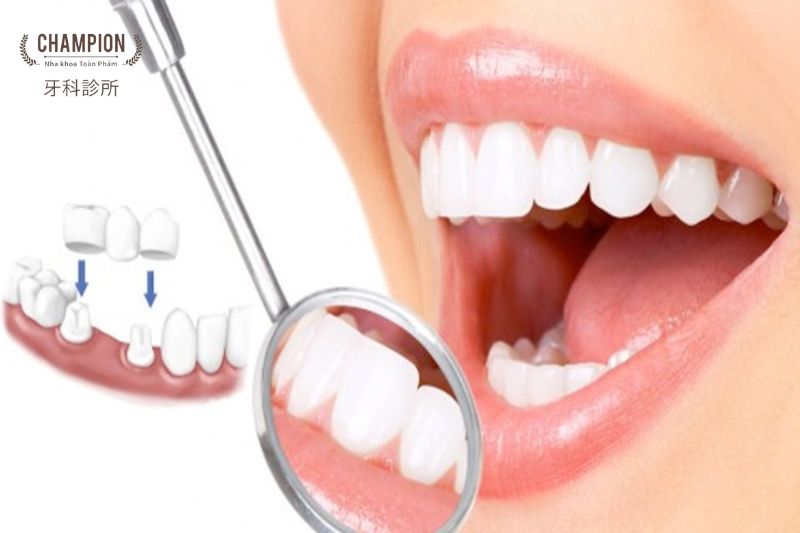Teeth whitening, also known as dental bleaching, is a cosmetic dental procedure that aims to lighten the color of teeth and improve their appearance. It is a popular dental treatment that can be done in a dental office or at home using over-the-counter whitening products
What is teeth whitening?
Teeth whitening is a cosmetic dental procedure that is designed to lighten and brighten discolored or stained teeth. Over time, teeth can become discolored due to a variety of factors, including aging, smoking, certain medications, and consuming certain foods and drinks.
Teeth whitening treatments use a special bleaching agent to break down the stains on the surface of the teeth and lighten their color. There are several different teeth whitening options available, including in-office treatments and take-home kits that can be used at home.
While teeth whitening can be an effective way to improve the appearance of discolored teeth, it's important to note that it may not be suitable for everyone. Your dentist or dental hygienist can evaluate your individual needs and recommend the most appropriate teeth whitening treatment for you. Additionally, it's important to understand that teeth whitening is a cosmetic procedure and may not address underlying dental health issues, such as tooth decay or gum disease.

Why do you need teeth whitening?
- Stained or discolored teeth: Teeth can become discolored over time due to aging, consuming certain foods and drinks (such as coffee, tea, and red wine), smoking, or taking certain medications. Teeth whitening can help to remove these stains and restore the natural color of your teeth.
- Special occasions: Many people choose to get teeth whitening before special occasions, such as weddings or job interviews, to improve their confidence and appearance.
- Boosting self-confidence: Whiter teeth can help to boost self-confidence and improve overall self-esteem.
- Improving appearance: Whiter teeth can improve the overall appearance of your smile, making it look healthier, cleaner, and more attractive.
It's important to note that teeth whitening may not be suitable for everyone. For example, if you have tooth decay or gum disease, your dentist may recommend that you address these issues before pursuing teeth whitening. Additionally, some people may experience increased sensitivity or other side effects as a result of teeth whitening. Your dentist or dental hygienist can evaluate your individual needs and help you determine whether teeth whitening is the right option for you.

Teeth whitening process at Champion dental clinic
At Champion Dental Clinic, the teeth whitening process typically involves the following steps:
- Evaluation: Your dentist or dental hygienist will evaluate the current condition of your teeth and discuss your goals for teeth whitening.
- Cleaning: Before the teeth whitening procedure, your teeth will be cleaned to remove any surface stains or debris.
- Protection: To protect your gums and other sensitive areas of your mouth, your dentist or dental hygienist will apply a special gel or rubber shield to your gums.
- Whitening agent: A whitening agent, typically containing hydrogen peroxide or carbamide peroxide, will be applied to your teeth. This agent will be activated by a special light or laser, which helps to break down stains and discoloration on the surface of your teeth.
- Multiple sessions: Depending on the degree of discoloration and the desired level of whitening, multiple sessions may be necessary to achieve optimal results.
- Maintenance: After the teeth whitening procedure, your dentist or dental hygienist may provide instructions on how to maintain the results of the treatment. This may include avoiding certain foods and drinks that can cause staining, practicing good oral hygiene habits, and periodic touch-up treatments.
It's important to note that the teeth whitening process may vary depending on the specific treatment used and the individual needs of the patient. Your dentist or dental hygienist can provide more detailed information on what to expect during the teeth whitening process at Champion Dental Clinic.
How long does teeth whitening at Champion Dental usually take?
The duration of teeth whitening at Champion Dental Clinic can vary depending on the specific treatment used and the desired level of whitening. In general, a single teeth whitening session at the clinic may take approximately 30-60 minutes. However, multiple sessions may be necessary to achieve optimal results.
It's important to note that the results of teeth whitening can also vary depending on factors such as the degree of discoloration, the type of stains, and the individual characteristics of your teeth. Your dentist or dental hygienist can provide more detailed information on what to expect in terms of duration and results for teeth whitening at Champion Dental Clinic.

How to keep teeth white after long-term bleaching
Maintaining white teeth after long-term bleaching involves following a few simple tips:
- Practice good oral hygiene: Brush your teeth twice a day with a fluoride toothpaste and floss daily. Good oral hygiene helps prevent the buildup of plaque and tartar, which can cause discoloration.
- Avoid staining substances: Limit your intake of foods and drinks that can stain your teeth, such as coffee, tea, red wine, and dark-colored foods like berries and soy sauce. If you do consume these substances, try to rinse your mouth or brush your teeth afterwards.
- Use a straw: When drinking beverages that can stain your teeth, use a straw to minimize contact with your teeth.
- Quit smoking: Smoking can cause yellowing of teeth and other dental problems, so quitting smoking can help maintain white teeth.
- Consider touch-up treatments: Depending on the type of teeth whitening treatment you had, touch-up treatments may be necessary to maintain the results over time. Your dentist or dental hygienist can recommend the best approach for your individual needs.
It's important to note that maintaining white teeth after long-term bleaching requires ongoing effort and commitment to good oral hygiene and lifestyle choices. Your dentist or dental hygienist can provide additional guidance and support for maintaining white teeth after teeth whitening treatment.
Is teeth whitening harmful?
Teeth whitening is generally considered a safe cosmetic dental procedure when performed by a trained dental professional. However, like any dental treatment, there are potential risks and side effects that you should be aware of.
Common side effects of teeth whitening include tooth sensitivity and gum irritation. These side effects are usually temporary and should subside within a few days after treatment. In rare cases, teeth whitening can cause more severe side effects such as chemical burns, enamel damage, or uneven coloration of the teeth.
To minimize the risks of teeth whitening, it's important to have the procedure done by a qualified dental professional who can assess your oral health and recommend the best approach for your individual needs. It's also important to follow the aftercare instructions provided by your dentist or dental hygienist, including avoiding certain foods and drinks for a period of time after treatment.
If you have concerns about the safety of teeth whitening or any other dental procedure, talk to your dentist or dental hygienist. They can provide more information on the risks and benefits of teeth whitening and help you make an informed decision about your dental care.
>> See more: Summary of the best orthodontic methods
Who should get teeth whitening?
Teeth whitening is a cosmetic dental treatment that can improve the appearance of your teeth by removing stains and discoloration. While anyone can benefit from teeth whitening, there are certain factors that make some people better candidates for the treatment than others.
People who have stains or discoloration caused by the following factors may benefit from teeth whitening:
- Age: As we age, our teeth can become yellow or dull due to wear and tear and the natural aging process.
- Lifestyle habits: Certain lifestyle habits such as smoking, drinking coffee or tea, or consuming other staining substances can cause discoloration of the teeth.
- Medications: Certain medications such as antibiotics, antihistamines, and high blood pressure medications can cause tooth discoloration.
- Genetics: Some people are born with naturally darker or yellowish teeth due to genetics.
It's important to note that teeth whitening may not be effective for all types of discoloration, such as discoloration caused by injury or certain medical conditions. Your dentist or dental hygienist can assess your teeth and recommend the best approach for your individual needs.
Vietnamese & English: (028) 5411-2295
中文: (028) 5411-2297 172 Nguyen Luong Bang, Tan Phu Ward, District 7, Ho Chi Minh City.
Fanpage: Champion Dental Clinic 牙科診所
Zalo: Champion Dental Clinic
Youtube: Champion Dental Clinic 牙科診所
 Champion Dental Clinic
Champion Dental Clinic



